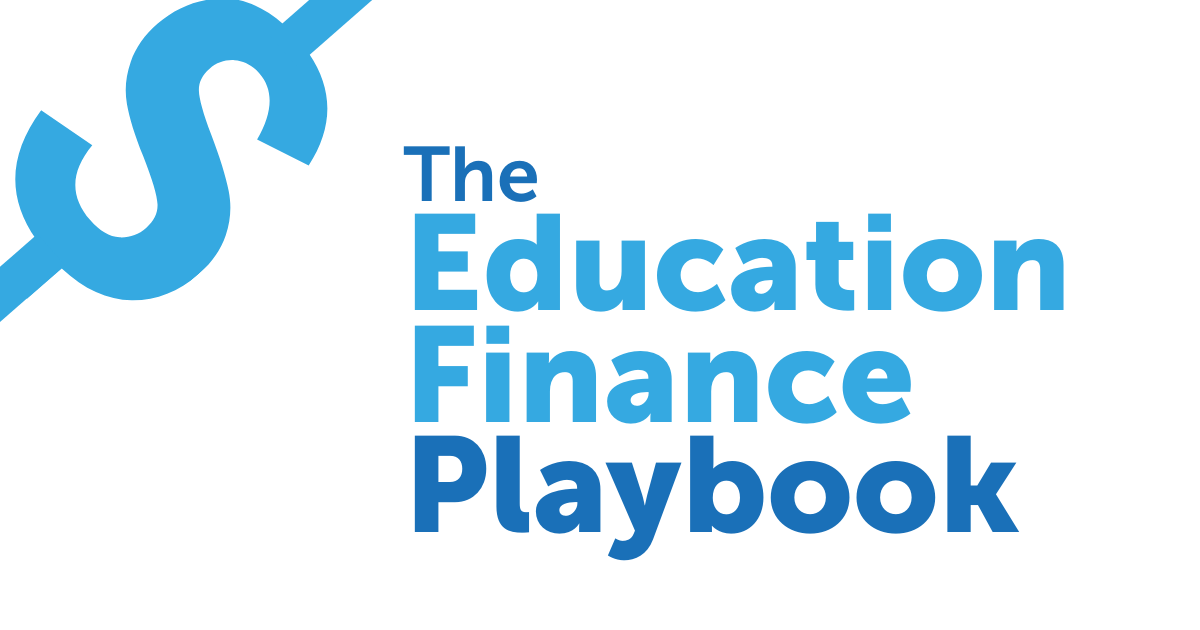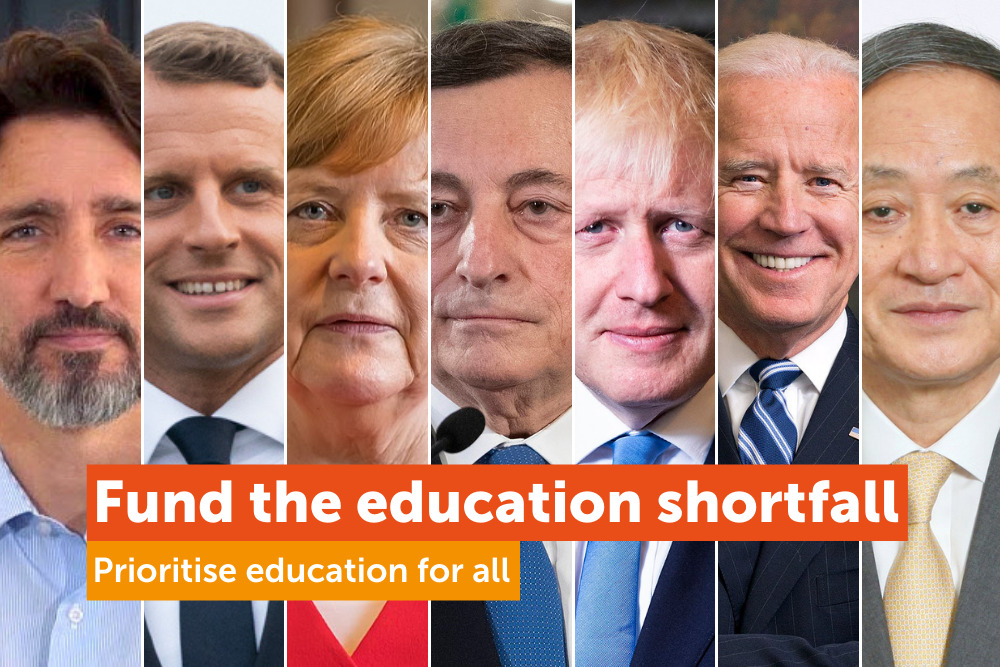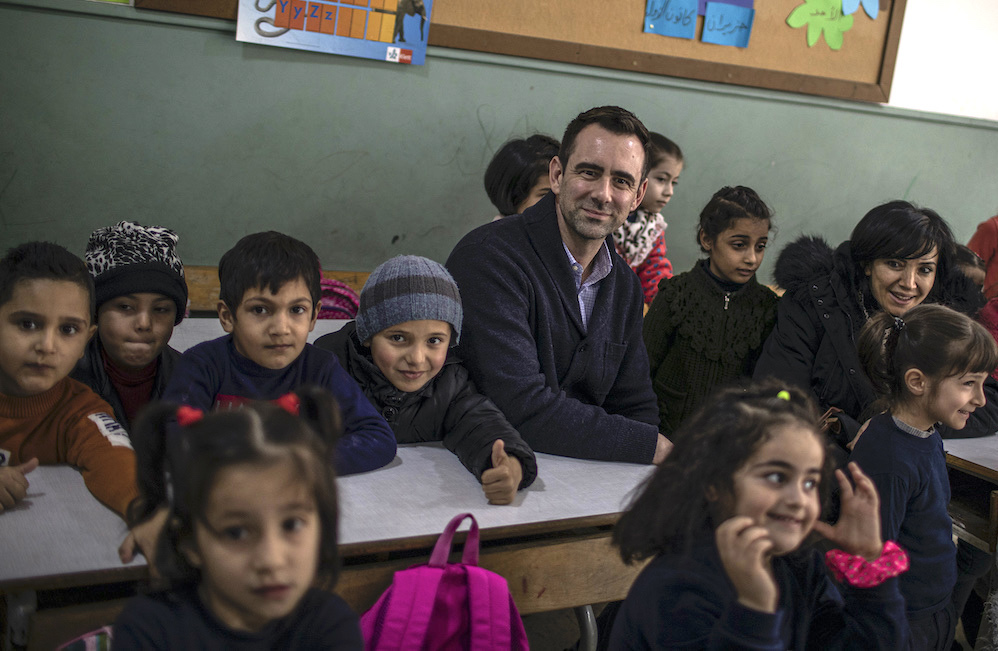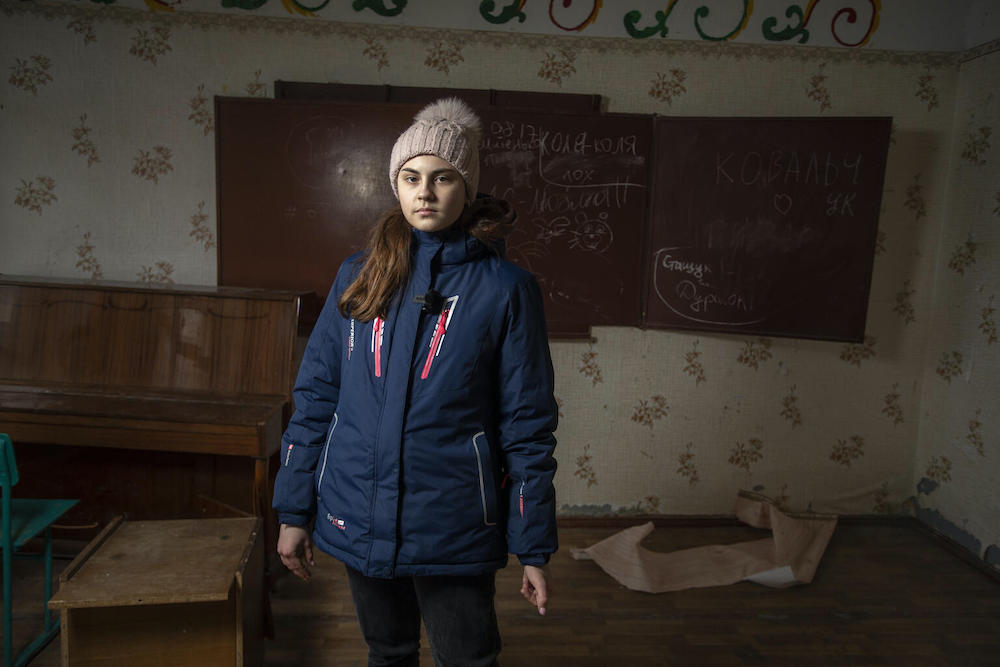
World leaders will fail children unless they act urgently to increase investment in education

Education funding, International Finance Facility for Education, Justin van Fleet
A new Theirworld report warns of an "alarming" funding gap and says the G7's current recovery plan risks leaving millions of vulnerable children behind.
A new Theirworld report warns that world leaders are letting down the most vulnerable children by failing to prioritise education in their post-Covid recovery plans.
With less than 100 days until the G7 summit, we are calling for “bold commitments from brave leaders” to ensure that every child is on track to be in school by 2030.
Our report reveals that, without urgent action, more than half of all children will not have the most basic literacy skills by 2030. This would have “a devastating impact” not just on the global economy but on some of the greatest challenges the world is facing such as climate change, poverty and food security.
The Education Finance Playbook warns that at least an additional $75 billion a year, on average, is needed to meet the United Nations’ goal of quality education for every child by 2030.
Current aid to education is just $16 billion a year and is projected to fall, leaving an education funding gap of at least $59 billion a year which is not accounted for in any plans or proposals on the table.

To plug the funding gap, world leaders must commit to innovative new ways to unlock billions of dollars for education, says the report, which sets out a timetable for action starting at the G7 meeting in June through to the RewirED summit in Dubai in December.
Theirworld President Justin van Fleet said: “Even before Covid-19, 260 million children were not in school. The pandemic has worsened the global education crisis, pushing the world’s most vulnerable children further to the margins. Funding education for every single child on the planet by 2030 is attainable but it will require bold action from brave leaders. Currently, the numbers just don’t add up.”
In addition to fully funding the appropriate UN agencies and specialised global funds such as the Global Partnership for Education and Education Cannot Wait, the report urges the G7 to back the International Finance Facility for Education (IFFEd), a new fund designed to maximise funding from donors to help poorer countries invest in education.
The playbook calls on G7 leaders to commit an initial $1 billion in innovative finance, helping generate more than $25 billion in new funding for lower-income countries.
What is the International Finance Facility for Education?
Bringing together public and private donors, alongside international financial institutions such as the World Bank, the fund “supercharges” education finance through a combination of grants and guarantees, unlocking up to $27 for every dollar paid into the fund.
According to the report, if a donor country contributing $500 million in aid per year diverted $65 million through the facility, they could provide $885 million to countries – 75% more. Similarly, if a philanthropist wanted to invest $1 billion in education, channeling it through the Facility would create $3.14 billion in new financing for education — and nearly $30 billion in partnership with donor governments.
The report calls for mobilising finance around several big-ticket recovery efforts, including connectivity, digital inclusion, school meals and early childhood education.
The pandemic has had a devastating impact on children. At the height of the crisis, more than 1.6 billion children, including 767 million girls, were forced out of school, putting them at greater risk of sexual exploitation, child marriage and domestic abuse. It is estimated that without proper investment in education more than 20 million children are at risk of never returning to the classroom.
Theirworld says that investment in education is “transformative” not just for children but for their families and communities.

Theirworld President Justin van Fleet with a kindergarten class at Bourj Hammoud School in Beirut, Lebanon. (Theirworld / Diego Ibarra Sanchez )
A child whose mother can read is 50% more likely to live past the age of five and twice as likely to attend school themselves. With just one additional year of schooling, a woman’s earnings can increase by 12%.
Van Fleet said: “If we are to achieve the goal of quality education for all children, even if poorer countries maximise their domestic revenue and prioritise education, we face a gap of at least $75 billion on average a year. Current aid is a drop in the ocean – currently at just $16 billion a year – so innovative finance is crucial.”
He added: “Now, at a time when big deals are being made in advance of the G7 meeting of world leaders in June, it’s time to honour our commitments to existing funds and to make the International Finance Facility for Education a priority so we can mobilise the sums necessary for education, invest it wisely and end the global education crisis once and for all.”
The UN has several prominent economists and financial experts now working on the Sustainable Development Goals who endorse innovative finance and IFFEd.
Gordon Brown, the UN Special Envoy for Global Education, said: “Already underfunded, global education now needs additional resources for catch-up programmes, digital inclusion and the safe return to school.
Education must be at the core of the pandemic recovery efforts and the financing gap must be filled. Amina Mohammed, UN Deputy Secretary-General
“To meet the Sustainable Development Goal commitments between now and 2030, we must pressure governments not to cut their education budgets but to increase them – and call on the international community to reverse current plans for cuts in aid budgets for education.
“For obvious reasons we will need innovative financial instruments, including the new International Finance Facility for Education, which should be deployed immediately so that countries can ensure that every child goes to school.”
Hiro Mizuno, UN Special Envoy on Innovative Finance and Sustainable Investments, said: “The ambitions for financing global education cannot continue to fall short, especially during the crucial recovery period.
“If governments are serious about education for all, then the G7 and other major opportunities this year must include the International Finance Facility for Education as part of their solution.
“Conventional finance approaches will not sufficiently support and fill the funding gap. It’s critical for all financial players in the public and private sector to bring in innovative finance ideas.”
Amina J. Mohammed, Deputy Secretary-General of the United Nations, Chair of the United Nations Sustainable Development Group, said: “Education must be at the core of the pandemic recovery efforts and the financing gap must be filled. Financing Sustainable Development Goal 4 must rise to meet the challenge ahead of us, which means increasing investment in national education budgets, fully funding institutions and leveraging innovative finance.”
More news

Young people’s tireless campaign for an education game-changer
